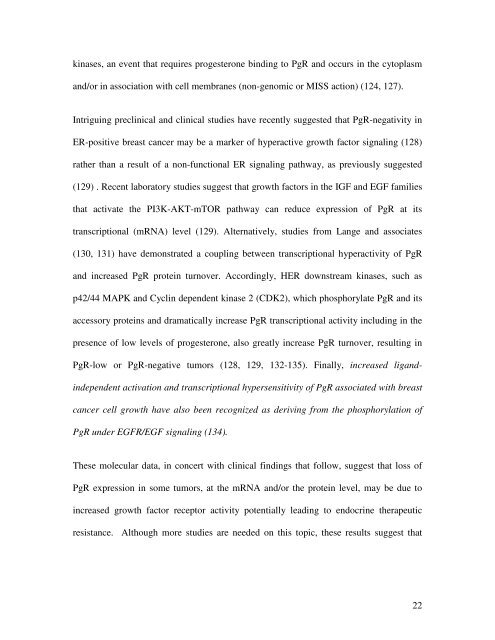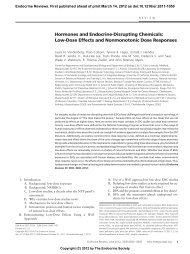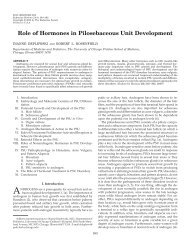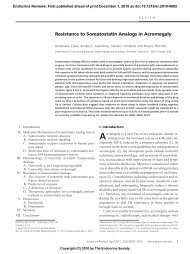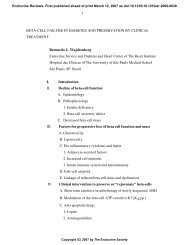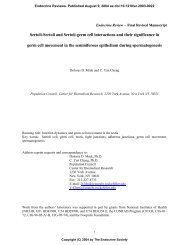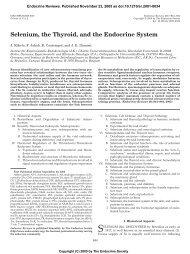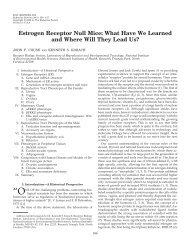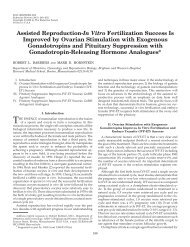Create successful ePaper yourself
Turn your PDF publications into a flip-book with our unique Google optimized e-Paper software.
kinases, an event that requires progesterone binding to PgR and occurs in the cytoplasm<br />
and/or in association with cell membranes (non-genomic or MISS action) (124, 127).<br />
Intriguing preclinical and clinical studies have recently suggested that PgR-negativity in<br />
<strong>ER</strong>-positive breast cancer may be a marker of hyperactive growth factor signaling (128)<br />
rather than a result of a non-functional <strong>ER</strong> signaling pathway, as previously suggested<br />
(129) . Recent laboratory studies suggest that growth factors in the IGF and EGF families<br />
that activate the PI3K-AKT-mTOR pathway can reduce expression of PgR at its<br />
transcriptional (mRNA) level (129). Alternatively, studies from Lange and associates<br />
(130, 131) have demonstrated a coupling between transcriptional hyperactivity of PgR<br />
and increased PgR protein turnover. Accordingly, H<strong>ER</strong> downstream kinases, such as<br />
p42/44 MAPK and Cyclin dependent kinase 2 (CDK2), which phosphorylate PgR and its<br />
accessory proteins and dramatically increase PgR transcriptional activity including in the<br />
presence of low levels of progesterone, also greatly increase PgR turnover, resulting in<br />
PgR-low or PgR-negative tumors (128, 129, 132-135). Finally, increased ligand-<br />
independent activation and transcriptional hypersensitivity of PgR associated with breast<br />
cancer cell growth have also been recognized as deriving from the phosphorylation of<br />
PgR under EGFR/EGF signaling (134).<br />
These molecular data, in concert with clinical findings that follow, suggest that loss of<br />
PgR expression in some tumors, at the mRNA and/or the protein level, may be due to<br />
increased growth factor receptor activity potentially leading to endocrine therapeutic<br />
resistance. Although more studies are needed on this topic, these results suggest that<br />
22


